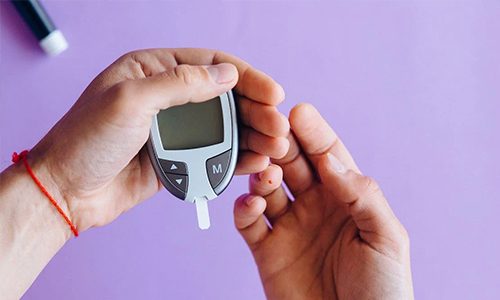Ketonemia refers to the quantity of ketones in the blood as a result of a metabolic process called ketosis. The body uses fat as its primary energy source instead of glucose during ketosis. It is commonly seen in people with diabetes and happens during pregnancy. Here is what you need to know about Ketonemia symptoms, causes, and other treatments.
Ketonemia Symptoms
One of the primary signs of ketonemia is having a higher amount of ketones in the blood. It often follows ketoacidosis that may occur due to starvation, diabetes, and alcohol misuse. A few symptoms of ketonemia are listed below.
- Vomiting
- Heavy breathing
- Panting
- Thirst and dehydration
- High blood sugar level
- Fruity smelling breath
- Tiredness
- Weight loss
What Causes Ketonemia?
Ketonemia may occur in a person due to various reasons. Some common causes include:
Diabetes
Individuals with diabetes have a low amount of insulin and a high amount of glucose in their blood. Once your body has low insulin levels, your cells are unable to use or store glucose for energy. It may cause diabetes or high blood sugar. Fatty meals, coffee, smoking, and stress raise your blood sugar to some extent.
Ketonuria is usual in diabetes people and their bodies eliminate excess ketones through urine. If you have diabetes, you need to add a lot of fruits, nuts, and leafy vegetables to your diet because they are considered the best foods for fighting diabetes.
Alcohol Misuse
People with heavy alcohol use may develop ketonemia. Constant alcohol consumption can lead to vomiting, nausea, and low blood sugar levels.
Keto Diet
What is a keto diet? A ketogenic diet includes the intake of very low-carb food items which promotes weight loss. It involves a person eating fats and proteins for energy. Few of them follow this diet to lose weight and for other health benefits. The low-calorie diet causes your body use protein and fats as fuel, resulting in the formation of ketones.
Fasting
Fasting for a long period can cause ketonemia. When you fast, your liver starts to use the proteins and fat reserves in your body resulting in ketone formation and ketonuria.
Starvation
Starvation can occur once you begin fasting for 12 to 14 hours or more. A long time of fasting can increase ketone production and burn fat for energy.
Apart from these, you can cause ketonemia due to other reasons like:
- Stress
- Continuous exercise
- Fever
- Digestive disturbances
Diagnosis for Ketonemia
Health specialists can find out the ketonemia in a person through blood and urine tests. Some tests to check for ketones include:
- Blood test to verify blood sugar levels
- Urine strip test with agent showcases the color change once they interact with ketones
- Measure ketone levels using enzyme assays
- Breath test for checking the fruity smell of acetone
- Home test with the use of blood glucose monitoring devices
Prevention of Ketonemia
Ketonemia does not require effective treatment and will resolve on its own. However, if a person starts experiencing ketoacidosis, they must follow urgent treatment. The treatment also varies depending on the health condition of the patient.
Treatment for ketonemia includes:
- Insulin injections
- IV(Intravenous) drips
- Appropriate diet
- Medication
- Other therapies
If the ketone levels become too high, it can create severe, life-threatening symptoms. In that case, consult a healthcare provider to detect Ketonemia with a blood test.























